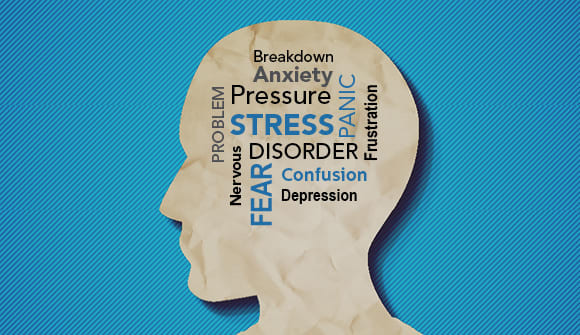Minding your mental health
4 steps to help you stay emotionally fit.
Article Date:

When it comes to our physical health, we often take preventive measures to ensure we stay well. For example, we take vitamins to ward off a cold and get the flu shot ahead of flu season. But what should we be doing to protect our mental health, and why is it so important?
“Prioritizing your mental health makes life feel more doable and allows you to be the very best version of you,” said Danielle Newsholme, a mental health therapist with Baptist Behavioral Health. “While you may be able to function fine with unmanaged anxiety, life doesn’t have to be that hard.”
Here are 4 simple things to do to make sure you’re prioritizing your mental well-being:
Improve your sleep. Good sleep hygiene – a term referring to the routines you have before getting into bed – plays a key role in getting consistent, uninterrupted sleep. These habits include running a bath, turning down the lights, putting on a pot of tea and sitting on the couch to unwind.
“If you do these things regularly, you can train your brain to recognize these habits so your body will automatically go into shut-down mode at night,” said Newsholme.
Most adults need seven to nine hours of sleep to truly feel rested. If you get less than this on a regular basis, you increase your risk of developing depression or other mental health issues.
Get active. It’s no secret that being active boosts endorphins (the “feel-good” hormone), which help reduce stress, anxiety and feelings of depression. And you don’t need to do intense physical activity to release endorphins. Even a few minutes of yoga or walking can help you feel grounded and more at ease. If you’re not currently active, ease into it by aiming to walk for five to 10 minutes, two to three days a week.
“If walking is too strenuous, try stretching,” Newsholme said. “Or just go outside so you can feel the air, breathe it in and put yourself in that moment. It will help ground you.”
Be mindful of your eating habits. It’s common to eat in response to emotions, especially if you’re feeling stressed or overwhelmed.
Managing your hunger can help you avoid overeating. Aim for three healthy meals and one or two nutritious snacks daily. Try to incorporate mood-boosting foods like bananas, oats, berries and avocados into your diet. And, importantly, don’t go more than four to five hours between meals.
Stay connected. Studies show people who connect with others are less depressed and have higher self-esteem.
Connecting with family is a good place to start.
“Make an effort to be present and mindful when you’re with your loved ones,” said Newsholme. “I’m a huge advocate of family dinner time. It’s an opportunity to find out how everyone’s day was and temporarily disconnect from electronic devices.”
Regularly catching up with friends is also important. If you’re new to an area, try finding people with similar interests to connect with. For example, if you like art, join a “friends of the museum” group, or if sports are more your thing, look into participating in a team activity like softball or pickleball.
If you're feeling depressed, anxious or struggling with any of the issues above, Baptist Behavioral Health providers are here to help. Call 904.376.3800 to make an appointment with a mental health professional.



